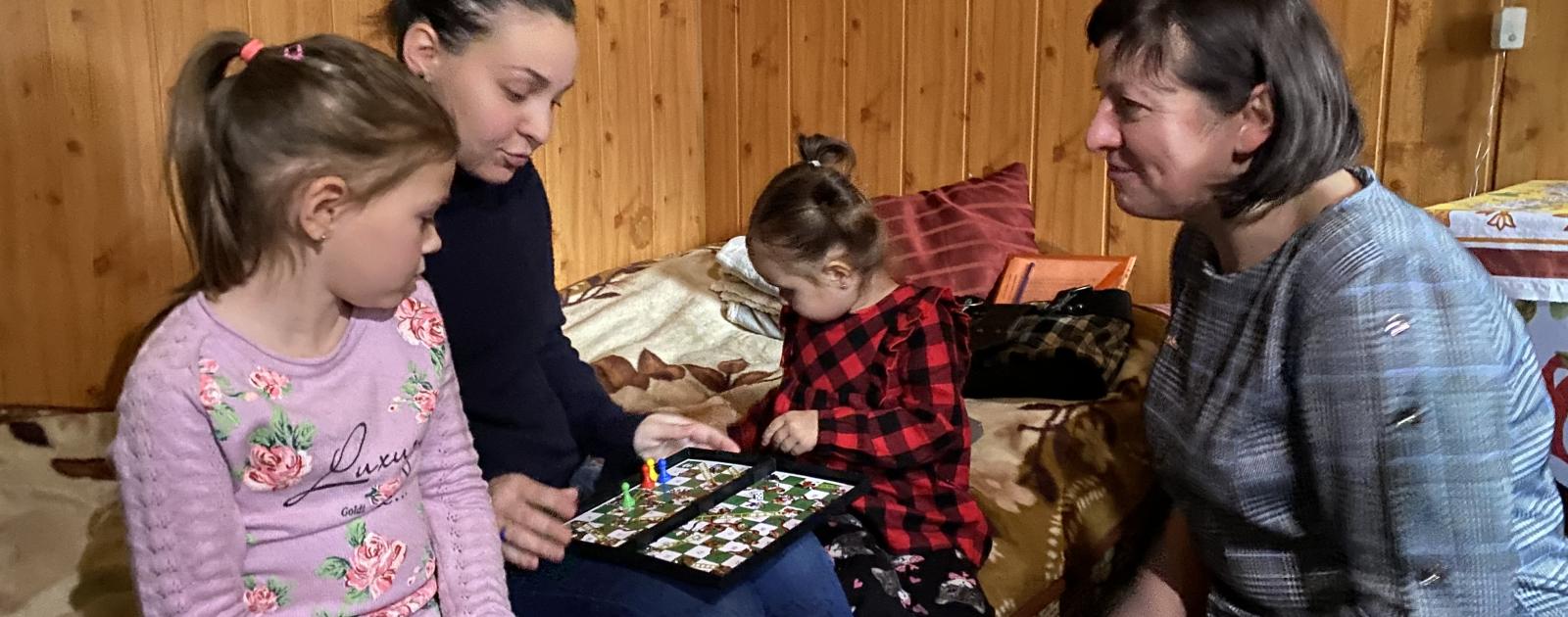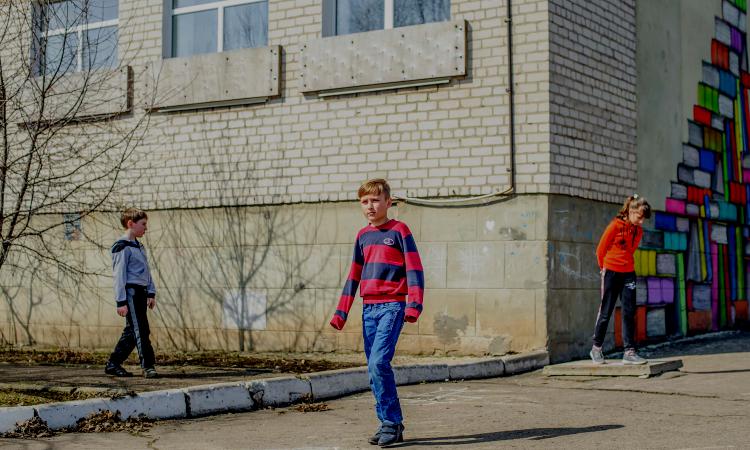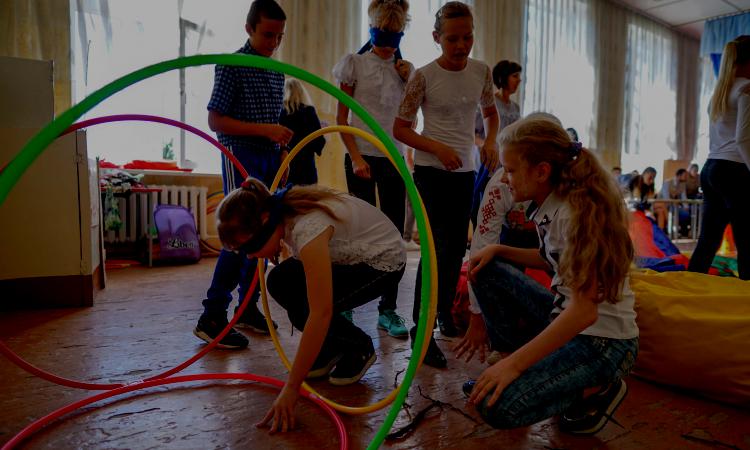
Liubov Gerasymiuk is one of those who changed her field of work to help families with children during the difficult situation in the country.
Liubov used to work as an elementary school teacher in the Kosmatska community, and she is new to the social sector. From the beginning of her studies and familiarization with the new profession, it was difficult for her to adapt, because everything was new to her.
"I decided to take the Terre des hommes training, it was a very good project, and I tried my hand at it. I want to help people," says Liubov.
Currently, Liubov has eight families under her social support. In particular, these are internally displaced families, as well as local residents in difficult life circumstances.
"People come with different questions and needs. For example, low-income families and families with many children need help in receiving social benefits. Many internally displaced families have problems with food and clothing," says Liubov.
Almost everyone who came to the social worker for help needed counseling and referral services. Liubov usually refers people to different institutions: to the administrative service center, humanitarian funds, inclusive resource centers, hospitals, etc.
"My role as a social worker is to help families in difficult life circumstances, internally displaced people who have moved due to wartime."
One of the families Liubov supports is a family from Luhansk oblast, where the father is raising two boys aged 14 and 11. In the spring, the family evacuated to Ivano-Frankivsk oblast and was temporarily housed in an old house in the village. The conditions did not allow the family to stay in that house for the winter, so local residents advised them to contact a social worker. Thanks to the joint work of the community and its residents, the family was provided with new housing in an old school, and now the boys are comfortable and warm there.
"Before the full-scale invasion, we were living well," Kostia says. "We went out with friends, went to school in a neighboring village. We had a computer at home and could study. When we came to Kosmach in October, there was a problem with housing, but the community provided us with a classroom in the school and we moved here. The community accepted us very well."
Now the brothers attend a local school. Here they have made new friends and often spend time together playing board games.
"After Ukraine's victory, I dream of finishing school, becoming a chef, going to Paris and opening my own restaurant with Ukrainian cuisine," Kostia shares his plans.
Also Liubov supports a family from Kyiv oblast - mother Oksana and two girls aged 7 and 3 years old. The family lived not far from Boryspil airport and because of the constant explosions in the first days of the war, they decided to move to a relative's house in Ivano-Frankivsk oblast.
The mother found out about the social worker from the school teacher of her eldest daughter. Liubov engaged a psychologist for the girl, because the family was going through a divorce, and the child was often worried about it.
"As a specialist, Liubov is very good. She came to us, introduced herself, asked what our needs were. Now she is helping and supporting our family, visiting us. We don't know what will happen in the future, because it's still scary to return home," the mother says.
During the 6 months of her work, Liubov became a support for many families and sometimes a friend in some situations. Sometimes it was enough to talk to a person by phone when it was needed. To listen, to give advice, to calm.
"I have never encountered this profession before. Now I believe that this profession is needed in the community. Because there are people who came from other cities, from the occupied territories. They are not well oriented on the ground. There must be someone who can help them adapt to life in the new environment."
During the pilot project to strengthen the social service delivery system, Tdh trained and employed 20 specialists in 19 communities in Ivano-Frankivsk oblast. Tdh supported their work for 6 months with technical equipment, salaries, capacity building, etc.
During this time, 61 families received comprehensive individual support, and 3,200 adults and children received needed social service. The next step is to create a position of social work specialist in the communities so that they can help protect the most vulnerable families with children.
Our activities are carried out within the framework of the project "SMILE - Support for children and their families during Migration and Integration in new Local Environments", implemented with the participation and financial support of the Crisis and Support Center of the Ministry of Europe and Foreign Affairs of France.

